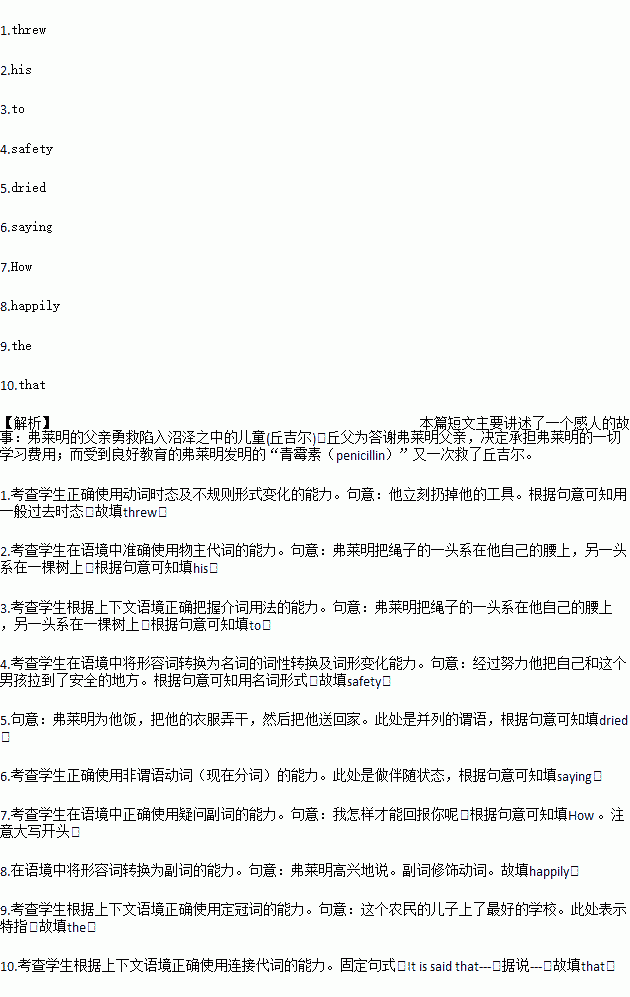题目内容
Fleming was a poor Scottish farmer. One day while working in a field, he heard a cry for help. He immediately 1.(throw) his tools away. Following the sound, Fleming came to a deep bog (沼泽), in which a boy was screaming and sinking. Fleming tied a rope around 2. own waist and the other end 3. a tree, and walked into the bog. With great effort he pulled himself and the boy to 4. (safe). He quickly took the boy to his farmhouse, where Mrs. Fleming fed him, 5. (dry) his clothes, and sent him home.
and the boy to 4. (safe). He quickly took the boy to his farmhouse, where Mrs. Fleming fed him, 5. (dry) his clothes, and sent him home.
The next day a carriage arrived. A well-dressed man stepped out, 6. (say) he was the father of the boy. “You saved my son’s life.” said the man. “7. can I repay you?”
“I don’t want payment.” Fleming replied, “Anyone would have done the same.”
Just then, Fleming’s son appeared at the door.
“Is he your son?” the man asked. “Yes.” said Fleming 8.(happy).
“I have an idea. Let me pay for his education. If he’s like his father, he’ll grow to be a man we’ll both be proud of.”
And so he did. Thus 9. farmer’s son attended the best schools, graduated from a medical college, and became the world-famous Nobel prize-winning scientist and discoverer of penicillin, Sir Alexander Fleming.
It’s said 10. many years later the man saved from the bog caught pneumonia(肺炎).
Penicillin saved his life. His name? Sir Winston Churchill.
 每日10分钟口算心算速算天天练系列答案
每日10分钟口算心算速算天天练系列答案

 to have a conversation about the problem. 3. Each person should also have an opportunity to listen to the other person’s point of view.
to have a conversation about the problem. 3. Each person should also have an opportunity to listen to the other person’s point of view. tish professor of Egyptian history
tish professor of Egyptian history on B. expensive
on B. expensive